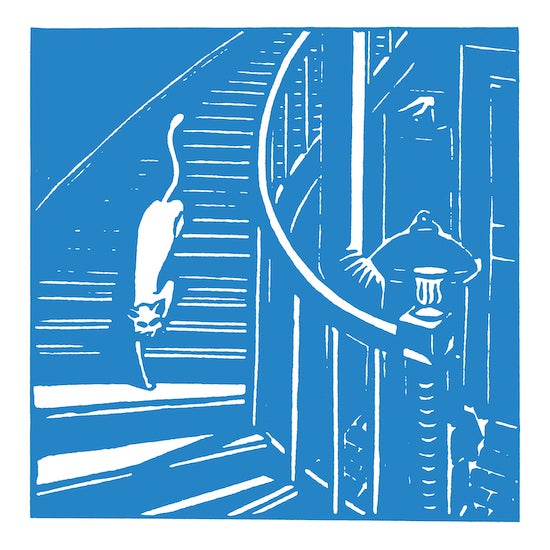The Cat’s Miaow played just one official gig and the length of their entire discography clocks in at a couple hours’ material, tops. Still, this compilation makes a compelling case for the Melbourne four piece as one of the great forgotten groups of the 90s twee/jangle pop scene.
Founded by Australian indie mainstays Bart Cummings (Girl Of The World) and Andrew Withycombe (The Ampersands) the band recruited friends Kerrie Bolton as vocalist and Cameron Smith as drummer. The four quickly amassed a pile of songs that they released on tapes between ‘90–’93 and on a volley of 7-inch singles and split-releases in the years after (including a flexi-disc with Stereolab, already a big deal and – bluntly – phoning it in a bit on that particular record) before quietly fading out of existence.
This compilation is mostly culled from those later releases, with a smattering of cuts from 1993’s How Did Everything Get So Fucked Up for good measure. The sound is rough and ready throughout, thick with the bleary-eyed, hayfever fuzz of old four-track recordings. But while The Cat’s Miaow’s recording methods were primitive, there’s real magic here. These eighteen short songs (twenty-four if you pick up the version that comes with a bonus 7") are bursting with melodic ideas, interesting sonic textures and always a gorgeous vocal from Bolton.
Reference points abound. Galaxie 500 are a clear influence. Various members of the Sarah Records roster are recognisable contemporaries. The Pastels, too. The Cat’s Miaow were not original, but they honed their sound to perfection. Bolton, especially, seemed to have an instinctive knack for conveying sad-eyed heartbreak on tracks like ‘Stay’, the immaculate, forty-five-second long ‘I Can’t Sleep Thinking You Hate Me’ and the numb self-loathing of opener ‘Hollow Inside’.
Elsewhere ‘Firefly’ and ‘Shoot The Moon’ prefigure Cigarettes After Sex’s reverb-drenched reveries by several decades, the latter duetting Cummings’ and Bolton’s vocals in an ode to drug-fuelled romance. On ‘Portland, Oregon’, Cummings takes the lead, the vulnerability of his uncertain, youthful voice adding an additional level of sweetness to its bashful dream pop shuffle.
A few of the tracks look to the future. When Cameron Smith moved to London the remaining three members reformed as Hydroplane and explored a more abstract, electronic approach hinted at here in the looping samples and layers of guitar on ‘Barney & Me’, or ‘What Time Is It There?’, which buries Bolton’s vocals in reverb and discordant synthesizer.
This isn’t the first collection of the quartet’s material, but it’s the first time that any of this music has been available this century. It also comes blessed with the previously unreleased ‘I Take It That We’re Through’, a truly lovely thing that showcases Bolton’s vocals at the peak of her power and a gorgeous, delicate guitar figure from Cummings. Recorded in 1998, its slightly fuller production and length – a whole three minutes and eight seconds, practically an epic by this group’s standards! – point the way to their final release, 1999’s The Long Goodbye.
There’s something tantalisingly ephemeral about The Cat’s Miaow. A single gig, a shoebox-worth of tapes and singles and a slow transformation, rather than a formal split. But while the songs here are often over before you’ve fully comprehended that they’ve started, there’s something enduring and deeply addictive about these paeans to heartbreak, despair, nostalgia and youthful love. “How did everything get so fucked up?” asks the cover of an early tape. I don’t know and neither do the band. Maybe you’ll figure it out the next time you play this wonderful record. Or perhaps the time after that.


